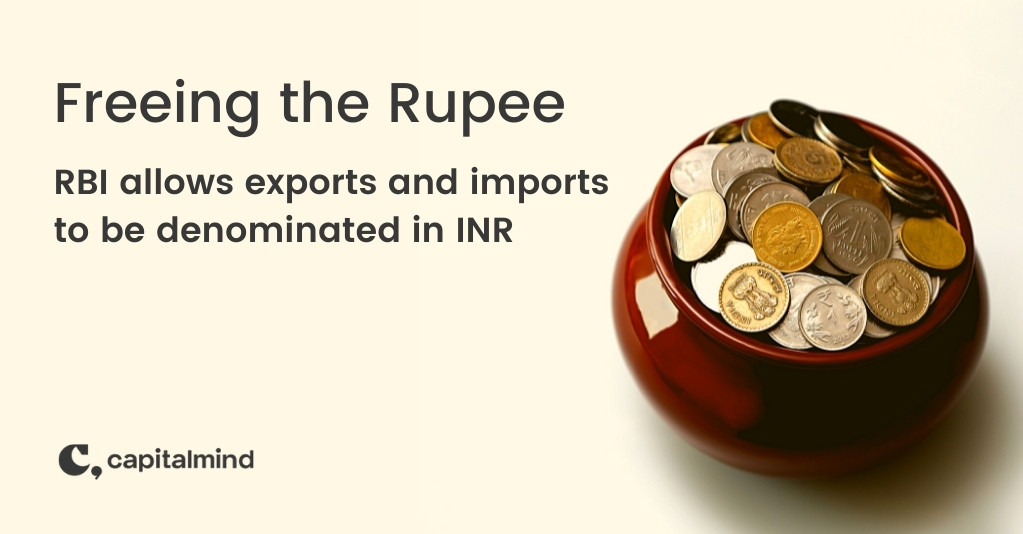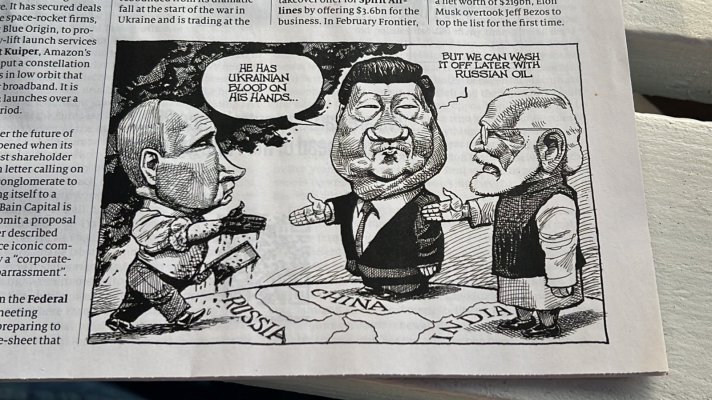Support Ukrainian Developer.
- Thread starter The_GarlicBread
- Start date
You are using an out of date browser. It may not display this or other websites correctly.
You should upgrade or use an alternative browser.
You should upgrade or use an alternative browser.
- Status
- Not open for further replies.
blr_p
Quasar
Russians have entered this into the record at the UNSC
It's purpose is to pre-empt a similar future charge from the west on the Russians.
I call this UNSC judo. If this is correct you won't hear more on this subject because its a block. The west has no avenue to pursue.
There is another angle going on here too. The Russians are using Hunter to interfere in American domestic politics.
It's purpose is to pre-empt a similar future charge from the west on the Russians.
I call this UNSC judo. If this is correct you won't hear more on this subject because its a block. The west has no avenue to pursue.
There is another angle going on here too. The Russians are using Hunter to interfere in American domestic politics.
Last edited:
> There is another angle going on here too. The Russians are using Hunter to interfere in American domestic politics.
You mean, Russians are using United States of America's President's son, supposedly most patriotic people evar ? And what will Trump do now ?
Don't think one need to be this bent and out of shape explaining world events
You mean, Russians are using United States of America's President's son, supposedly most patriotic people evar ? And what will Trump do now ?
Don't think one need to be this bent and out of shape explaining world events

blr_p
Quasar
Capitalise on it. Republicans will win the midterns this Nov and in 2024 a republican candidate will become president.You mean, Russians are using United States of America's President's son, supposedly most patriotic people evar ? And what will Trump do now ?
Whether Trump stands or not is unclear. Most likely he will not and the candidate will be endorsed by him. Pompeo ?
This Hunter talk is only happening in the media. If there was a case they would be arguing in court. Not happened yet.
Until there is a conviction all this talk of Hunter is hot air.
The Russians did not take kindly to Biden's recent comment about Putin having to go.Don't think one need to be this bent and out of shape explaining world events
Russia is not Iraq. The west have taken on more than they handle and have only themselves to blame for it.
I don't support the Russian invasion, but this kind of economic and internet warfare can also be used on us tomorrow if there is a political or geopolitical divergence.
We keep showcasing all kinds of weapons during republic day, they have their place, but India has a gaping hole in security.
We export our assets, brain power, and import liability, technology and weapons. Even after 200 years of slavery Indians have not learnt our lessons.
Here is a article on how the sanctions were planned and orchestrated - https://www.newyorker.com/news/anna...ial-who-pierced-putins-sanction-proof-economy
We keep showcasing all kinds of weapons during republic day, they have their place, but India has a gaping hole in security.
We export our assets, brain power, and import liability, technology and weapons. Even after 200 years of slavery Indians have not learnt our lessons.
Here is a article on how the sanctions were planned and orchestrated - https://www.newyorker.com/news/anna...ial-who-pierced-putins-sanction-proof-economy
blr_p
Quasar
Do you understand why Russia invaded ? it's security related. Does a country have the right to act to defend its security interests when threatened or not. Of course they do. If the US can enter Iraq on such a basis then i see no problem with Russia or anyone else for that matter doing the same.I don't support the Russian invasion,
The core issue is the common security of Europe. All must be secure or none will be. But the way the west has been going about it is as a zero sum game. They want to be more secure than Russia. Does not work that way. Russia has been voicing these concerns for over a decade to no avail. In fact this has been outstanding ever since 1991.
They were ignored and the perception grows that NATO and Europe do not give a damn. Well, Russia's security is for Russia to decide and not anyone else.
I see many parallels with our country over the years and this conflict
- China & India never had any historical issues. Because there was a buffer in between called Tibet. When that buffer went away the Chinese were at our border and within a decade we were at war and continue to have issues into the present and could see a conflict in the future. The only way to prevent it is to restore Tibet as a buffer. Well Russia is making Ukraine a buffer. One that is neutral and will not pose a threat to Russia in the future. In this way Russia is preventing WW3. A good thing.
- Ukraine has become like a Pakistan for Russia. Russia is currently doing what India was not allowed to do. Finish the job. Sort out the problem. Notice there is nothing the west can do to stop Russia completing its objective. Unlike in India's case where we were always forced to come to some compromise and procrastinate. '71 was an exception but otherwise our options were limited. Zelensky begging in various parliaments is like Imran going around the world with a begging bowl.
- banning the Russian language in Ukraine to the point where if a vendor does not greet you in Ukranian will attract a fine (!) Well, Sri Lanka in the early 70s amde Sinhala the official language and deprecated Tamil. What happened ? Within a decade LTTE sprang up, we trained them and eventually had to go into Sri Lanka to neutralise them. North wanted to impose Hindi in the south in the 60s and there was a big pushback that continues to this day. When you impose or ban language you are trying to erase a culture.
- When Russia says it is liberating the Donbas and recognises the two republics there as independent its because these two have been getting shelled by Ukraine forces for many years. Over 14,000 killed in 8 years. What ethnicity were the victims. Who killed them. This war did not begin a month ago. It's been going on for eight years. No western journalist has covered that period of Donbas just like they never covered what went on in Kashmir. The Russian foreign ministry explains here
I found an independent crowd funded American who is reporting from there. Patrick Lancaster
There are Americans who want good relations with Russia. Nobody listens to them and if you say anything slightly in Russia's support then you get attacked. They are self censoring in the west about what is happening. They are in effect parroting Ukranian PR. Just like they used to do for Pak PR. So much for freedom of expression and tolerance of the west. There are also Ukranians who want peace with Russia but as we've found out they've been ousted, sanctioned or otherwise silenced. So the present course is the only outcome left. Ukraine's policy on important matters not being made in Kiev but Washington since 2014.
This was an entirely unnecessary war where Ukraine (willingly) was used, abused and left to its own devices by the west. The west says sweet things but who replaces the lost loved ones who had to die for no reason. What does Ukranian nationalism mean ? where is the pride. Why this mad love affair for the west. NATO will not fight for you, EU is not offering fast track. What does west offer for Ukraine. Broken country and dead people. Only good Ukranians for west are dead Ukranians like only good Kashmiris for Pak are dead Kashmiris. The separatists want others to sacrifice their kids while their kids study abroad. The west encourages Ukraine to fight while they eat popcorn and watch the show. WTH!!
Absolutely.but this kind of economic and internet warfare can also be used on us tomorrow if there is a political or geopolitical divergence.
How well could China defend against such sanctions ? not very well either. They import fuel, food and are dependent on exports. This means China can be controlled if required.We keep showcasing all kinds of weapons during republic day, they have their place, but India has a gaping hole in security.
We export our assets, brain power, and import liability, technology and weapons. Even after 200 years of slavery Indians have not learnt our lessons.
I don't put much stock in western sanctions because Putin has not played his cards here yet and when he does he can make life unbearable in the west. To the point constituents start to question what Ukraine means for them and why they need to continue along this path. In other words they will be withdrawn at some point.Here is a article on how the sanctions were planned and orchestrated - https://www.newyorker.com/news/anna...ial-who-pierced-putins-sanction-proof-economy
Part of Russia's foreign reserves has been frozen. The idea going around is it will be used as reparations to rebuild Ukraine. Well, think back to Iran in the 70s. US pulled this same stunt on Iran after the revolution. So Iran held US embassy officials for 444 days. And then released them. Why ? Americans caved and the funds were released when Regan entered office. Now if Iran in the 70s could do that, imagine what Russia can do in 2022.
Another data point. In 2018 Russian oligarch Deripaska got sanctioned by the US. The next day aluminium prices went up 40%, a can of soda coasts 15 cents more and 10,000 jobs in the US were at risk. Couple of months later the US has to quietly withdraw those sanctions. This is just one Oligarch.
The people who have it the hardest are the Euros. They have to get off Russian fuel. 40% gas and oil comes from Russia. Imagine if India was in such a situation ? what could we do. Europe is going to be in an economic slump for the rest of this decade as they have to get gas from others and spend 10s of billions. in infrastructure.
The alternative is instead of US fighting Russia to the last Ukranian it becomes to the last European.
Since the operation began, Euros have given Russia $19B for fuel so they are in effect funding this war for Putin (!)
Last edited:
blr_p
Quasar
After the deputy NSA's trip and this talk of 'consequences' ,

 timesofindia.indiatimes.com
timesofindia.indiatimes.com
Love the way she calls out western hypocrisy
As the foreign minster has stated the only side India is on is its own !

India to face significant cost if aligned with Russia, US says | India News - Times of India
India News: President Joe Biden's top economic adviser said the administration has warned India against aligning itself with Russia, and that US officials have be
we will get to face the music from the Russians.The US has told India that the consequences of a "more explicit strategic alignment" with Moscow would be "significant and long-term," he said.
"What Daleep did make clear to his counterparts during this visit was that we don't believe it's in India's interest to accelerate or increase imports of Russian energy and other commodities," press secretary Jen Psaki said earlier this week.
Love the way she calls out western hypocrisy
As the foreign minster has stated the only side India is on is its own !
Attachments
Last edited:
blr_p
Quasar
Blog i'm following
An earlier post from March said this
An earlier post from March said this
Fun fact: The Ukraine has still not declared war on Russia, just as Russia has not declared war on the Ukraine. Why has the Ukraine not declared war on Russia? Because many Ukrainian senior military and security officers and other government officials, and/or their wives or other family members, have real estate and other assets in Russia, and if there’s a state of war, then Russia can legitimately expropriate that. So, the two countries remain officially at peace.
blr_p
Quasar
This was a tough interview and the foreign minister with composure admirably rose to the challenge
Euope has to grow out of the mindset that Europe's problems are the world's problems but the world's problems are not Europe's problems. Your problems are yours but my problem is ours.
India has to side with Europe on this Ukraine affair but when has Europe ever sided with India when it counted ? they never have if anything they were against us.
She points out how India's imports of Urals oil @$95 has shot up ninefold over Brent @$119
And ? does she expect India to sacrifice its growth because of this western created mess ? Chinese are importing from Russia big time.
On top of that can't import from Iran or Veuezuela. Then where the hell else are we supposed to import from ?
She says India is funding Russia's war but in reality its the Euros that are doing that to the tune of anywhere between $200m to $1bn A DAY !!!
The Euros sanction Russia while buying that much Russian energy every day. This is their position and they want to lecture us ?
What a feckless bunch these Euros are. They sleepwalked into the current conflict and expect others to foot the bill ?
I laugh whenever i hear Ursula Van der Crazy go on about Europe is going to replace Russian oil. They CANNOT when they depend on Russia for 40% of their energy needs whether it be gas, oil or coal !! The common man in Europe is going to foot the bill for this madness and will reward all these leaders by kicking them out at the next election.
Some guy asks why Europe should support India against China.
Heh, what support can Europe give India when they can't even manage problems in their own backyard.
This interview clearly exposes the Euro mindset towards India. Still think they can order us around. The minister pointed out India's standing in the world in nominal terms.
India is going to do what's in its interest because nobody else will.
“Don’t use a caricature version of one situation as a yardstick to pass a sweeping judgement”
For some security conference this sounded very much like random talk show anchor lambasting the minister.
Last edited:
blr_p
Quasar
Never let a good crisis go to waste - Churchill 
https://www.bloomberg.com/news/arti...-to-increase-russian-oil-imports-from-rosneft
Not only will this help keep inflation under control we stand to gain as well

https://www.bloomberg.com/news/arti...-to-increase-russian-oil-imports-from-rosneft
- State refiners want more crude directly from Russian oil co.
- Imports from Russia to displace spot purchases from elsewhere
By
Debjit Chakraborty
June 6, 2022, 3:51 PM GMT+5:30Updated onJune 6, 2022, 6:26 PM GMT+5:30
India is looking to double down on its Russian oil imports with state-owned refiners eager to take more heavily-discounted supplies from Rosneft PJSC as international buyers turn down dealings with Moscow over its invasion of Ukraine.
State processors are collectively working on finalizing and securing new six-month supply contracts for Russian crude to India, said people with knowledge of the companies’ procurement plans. Cargoes are being sought on a delivered basis from Rosneft, with the seller set to handle shipping and insurance matters, they said.
These supply agreements, if concluded, will be separate and on top of shipments that India already buys from Russia via other deals. Details on volumes and pricing are still being negotiated with Indian banks set to fully finance all cargoes, said the people who asked not to be identified as discussions are confidential. Indian refiners will increasingly procure supplies directly from Russian companies such as Rosneft as top international traders like Glencore Plc wind up their dealings, they added.
The state refiners include Indian Oil Corp, Hindustan Petroleum and Bharat Petroleum, while private processors are Reliance Industries and Nayara Energy, which is partly owned by Rosneft. Procurement activities for state and private companies are done independently. Spokespeople at the three largest state-owned companies couldn’t immediately comment when contacted.
Both state and privately-owned refineries in India have been ramping up purchases of Russian crude as sanctions and trade restrictions rolled out by the US, UK and European Union have caused most buyers to flee and offer levels to crash. An unprecedented amount of Russian crude was heading to India and China last month as European buyers scrambled for replacements and reached as far as the United Arab Emirates for alternatives. The ensuing panic and rerouting of global oil flows have lifted prices by more 20% since late-February when Russia invaded Ukraine.
Refiners in Asia’s second-largest oil consumer have been enjoying elevated profits from turning cheap crude into fuels that are sold domestically and also in the export market to customers in Europe and the US. Russian supplies form just part of India’s overall basket of crude oil feedstock, alongside other long-term as well as spot purchases from the Middle East and Africa.
The potential ramp-up of Russian crude purchases will likely weigh on the South Asian nation’s spot imports, said the people. India has bought more than 40 million barrels of Russian oil between late-February and early-May, which comes to about 20% more than flows for all of 2021, according to Bloomberg calculations based on trade data. Russian oil arrivals into India for May were at 740,000 barrels a day, up from 284,000 barrels in April and 34,000 barrels a year earlier, according to data from Kpler.
Although India’s purchases of Russian crude aren’t illegal or in breach of any sanctions, the country has come under pressure from the Biden administration and EU to stop doing business with Moscow in order to cut off the Kremlin’s access to oil revenue and funds. The Asian nation has reiterated that its volume of Russian imports are minuscule as compared to Europe’s purchases, and just a tiny fraction of the country’s total consumption.
“We don’t send people out there saying go buy Russian oil, we send people saying go buy oil,” Subrahmanyam Jaishankar, India’s foreign minister, said at a conference on Friday. “Now you buy the best oil you can in the market. I don’t think I would attach a political messaging to that.”
Discounted Russian oil has provided some financial relief to India -- which imports more than 85% of its needs -- just as inflation skyrockets alongside surging prices of everything from food to fuel. The access to cheap crude is already boosting India’s petroleum imports, which grew almost 16% in April from last year. The share of oil from the Eurasian region, which includes Russia, expanded to 10.6% in April versus 3.3% a year earlier, according to ministry data.
Not only will this help keep inflation under control we stand to gain as well
European traders get more discounts on Russian oil than Indian buyers. Thanks to EU sanctions!
blr_p
Quasar
^That will be temporary only.
They want a reduction of 70% by ship to increase to 90% by the end of the year. So there is no scope for these discounts to continue for Euro traders.
The next problem is they cannot replace such a large amount in such a short period of time. So they will buy 'non-Russian oil' via a middle man.
If a middle man sells Russian oil it is no longer Russian oil as far as Europe is concerned (!)
Russia sells to countries and those countries resell on to Europe. This could even be done by ships that change flags.
Fill up in Russia, sail to another country. Change the flag. Sail back to Europe.
The Euro consumer now has to pay extra so EU can say look we are no longer buying oil from Russia
The final point is there is no way for them to sanction us or they will cut off their own supply because they cannot buy from Russia and the world cannot make up the difference.
So...Russia continues to sell oil, others refine it and sell it on to the EU who subsidises Russia's war.
This will keep inflation under control in India and allow the govt to set a price ceiling on fuel costs which they will subsidise at the expense of the Euros.

 finance.yahoo.com
finance.yahoo.com
They want a reduction of 70% by ship to increase to 90% by the end of the year. So there is no scope for these discounts to continue for Euro traders.
The next problem is they cannot replace such a large amount in such a short period of time. So they will buy 'non-Russian oil' via a middle man.
If a middle man sells Russian oil it is no longer Russian oil as far as Europe is concerned (!)
Russia sells to countries and those countries resell on to Europe. This could even be done by ships that change flags.
Fill up in Russia, sail to another country. Change the flag. Sail back to Europe.
The Euro consumer now has to pay extra so EU can say look we are no longer buying oil from Russia

The final point is there is no way for them to sanction us or they will cut off their own supply because they cannot buy from Russia and the world cannot make up the difference.
So...Russia continues to sell oil, others refine it and sell it on to the EU who subsidises Russia's war.
This will keep inflation under control in India and allow the govt to set a price ceiling on fuel costs which they will subsidise at the expense of the Euros.

What Does Europe’s Ban On Russian Oil And Gas Mean For The West?
Europe’s ban on Russian oil and gas could trigger even higher inflation in the West as energy prices continue to soar
Editor OilPrice.com
Sun, June 5, 2022, 10:30 PM·3 min read
Europe's extreme dependency on Russian energy products from oil to natural gas is made clear recently from the manner in which they have approached sanctions – with incrementalism, slowly sinking back into the bushes.
The latest agreement among member nations on export bans targeting Russia is largely oil focused, not natural gas focused, with the union demanding an immediate 70% decrease in Russian oil transferred BY SHIP. Oil transferred by pipeline will continue to flow into the EU for now. The ban is intended to expand to 90% of all shipborne Russian oil by the end of this year. Natural gas imports from Russia will also continue.
While some European nations are more dependent on Russian energy than others, overall 40% of the EU's needs are supplied by the country's industry. It is not surprising that they are seeking an incremental approach to sanctions, they simply would not be able to survive another winter if they were to go cold turkey and block Russian imports completely. Of course, this does not mean that Russia has to operate on Europe's timetable.
Russia is already reducing exports of natural gas to multiple EU countries, with Denmark, Netherlands, and Germany being the latest to see losses. The EU's ban was oil and ship focused because they cannot find an alternative source for natural gas that would resolve shortages if they banned everything. Germany in particular would be destroyed by the loss of natural gas supplies from Russia with its 42% dependency.
The solutions offered by governments and in the mainstream media neglect certain realities. Namely, they claim that output can be increased or diverted to Europe to fill the gap. Joe Biden has suggested that the US is a “net exporter” of oil (this advantage has swiftly declined since he entered the White House according to the IEA) and that the US could help alleviate European demand. The IEA and OPEC members like Saudi Arabia have offered to increase market availability and output of oil if Russian exports are hit with sanctions.
The problem is that increased production is a fantasy stifled by the realities of labor shortages, increased drilling costs due to inflation and shortages in raw materials caused by supply chain disruptions. There is little chance that production capacity will ever be able to match EU demands, according to experts in the drilling industry.
So what does this mean?
It means that in order for Europe to fulfill its energy needs while banning its primary import source, the union will have to leach existing supplies from the global market. In other words, supplies will be greatly reduced in the West and prices are about to spike exponentially in order to feed the EU.
Despite all of this economic bluster, Russia has shown considerable resilience to sanctions on oil as both China and India have increased purchases in tandem with Europe's bans. The wider implication of this is that Europe and the West will be facing reduced global oil supplies and paying a premium while countries like China and India will be enjoying increased supplies and lower prices from Russia.
Last edited:
blr_p
Quasar
Looking for deals thanks to firesale prices by Shell, BP, Exxon in Sakhalin 

 lenta.ru
lenta.ru


Путин передал государству имущество компании-оператора «Сахалина-2»
Президент России Владимир Путин подписал указ о специальных мерах в топливо-энергетической сфере в связи с недружественными действиями иностранных государств. Российский лидер указом предписал сменить оператора нефтегазового проекта «Сахалин-2» Sakhalin Energy и передать имущество компании в...
India's plans
In May, the British-Dutch oil and gas giant Shell began negotiations with a consortium of Indian energy companies to sell its stake in the Sakhalin-2 project.
According to Reuters, the companies ONGC Videsh and Gail, in particular, wanted to take the place of Shell. The European company demanded that the negotiations go on two separate tracks - the purchase of a stake in the project and the acquisition of long-term contracts for the supply of LNG and crude oil, which Shell entered into with the Sakhalin-2 plant.
Also in May , it became known that the Indian ONGC was thinking about buying a 30% stake of the American ExxonMobil in the Sakhalin-1 project. The company plans to acquire energy assets at a low price in order to "secure energy supplies" to the country. ONGC, along with other participants in the Indian market - Bharat Petroleum and Indian Oil - also held preliminary negotiations on the acquisition of a 20 percent stake in the transnational giant BP in Rosneft .
blr_p
Quasar

Amid sanctions, Russia becomes India’s top DAP fertiliser supplier
Imports made at significant discount to international prices.
Arrived in the nick of time when sowing for the kharif crop begins and we got it at a discount

blr_p
Quasar
So the latest plan from the west to deal with Russian oil is to fix the price that oil will be sold for. They want to put in place a buyer's cartel.
This is like telling the owner of a store the only products you will buy are ones that you can set the price for.
They are targeting a price of $40-$60/barrel which they figure will cripple Russia. The Russian govt needs oil to be at a certain price to run things in Russia.
Sounds like a great idea, which buyer would not want cheap oil. Nobody wants inflation and rising prices.
But how realistic is it ?
To do this, earlier, they said no shipping insurance from western companies for any ship that carries Russian oil. Now they are saying they will allow insurance for ships so long as the oil it contains meets the price cap. So they are quietly weakening their own sanctions because the first thing they said flopped.
This will also solve the problem of oil transhipments. So if India gets Russian oil at $30 cheaper than market price and refines and ships to Europe for less than that it pockets the difference. Well, now India will be discouraged from doing so. And India should cooperate which we will not. In any case the EU has already created a loophole by stating they would be ok with mixes.
The west also wants OPEC to cooperate. Which would they(?!?) OPEC is a cartel that wants to set the selling price. Not have it set for them by buyers. If Russian oil sells for less than what they want then their prices will come down as well. So OPEC will not cooperate.
What price fixing does is aggravate shortages because Russia would just cut production. So they would still make the same money but sell less.
It will create blackmarkets which are a sure sign that the market isn't running optimally. It will make it harder for western industry to buy the cheapest oil on the market.
The hardest thing to do is enforcement. Who's going to do it ?
Does not matter. They are going ahead with their plan whether India or China or OPEC likes it or not. This means there could be a spike if Russia cuts production. The deal with Iran has hit some snag so there will be no Iranian oil on the market to make up the difference.
None of this might be necessary if by years end there is a global recession then the price of oil will automatically come down.
By which time Russia wil have completed its objectives in Ukraine.
This is like telling the owner of a store the only products you will buy are ones that you can set the price for.
They are targeting a price of $40-$60/barrel which they figure will cripple Russia. The Russian govt needs oil to be at a certain price to run things in Russia.
Sounds like a great idea, which buyer would not want cheap oil. Nobody wants inflation and rising prices.
But how realistic is it ?
To do this, earlier, they said no shipping insurance from western companies for any ship that carries Russian oil. Now they are saying they will allow insurance for ships so long as the oil it contains meets the price cap. So they are quietly weakening their own sanctions because the first thing they said flopped.
This will also solve the problem of oil transhipments. So if India gets Russian oil at $30 cheaper than market price and refines and ships to Europe for less than that it pockets the difference. Well, now India will be discouraged from doing so. And India should cooperate which we will not. In any case the EU has already created a loophole by stating they would be ok with mixes.
The west also wants OPEC to cooperate. Which would they(?!?) OPEC is a cartel that wants to set the selling price. Not have it set for them by buyers. If Russian oil sells for less than what they want then their prices will come down as well. So OPEC will not cooperate.
What price fixing does is aggravate shortages because Russia would just cut production. So they would still make the same money but sell less.
It will create blackmarkets which are a sure sign that the market isn't running optimally. It will make it harder for western industry to buy the cheapest oil on the market.
The hardest thing to do is enforcement. Who's going to do it ?
Does not matter. They are going ahead with their plan whether India or China or OPEC likes it or not. This means there could be a spike if Russia cuts production. The deal with Iran has hit some snag so there will be no Iranian oil on the market to make up the difference.
None of this might be necessary if by years end there is a global recession then the price of oil will automatically come down.
By which time Russia wil have completed its objectives in Ukraine.
blr_p
Quasar
Things are moving faster than I expectedHave you thought about why SWIFT has no viable alternatives despite being a glorified messaging system that can be replaced by WhatsApp.
Why do all international transactions happen in USD and are cleared by the federal reserve?
................some day by sheer size of our population as India progresses we will become an economic rival to the US, at 1/3 their per capita income. What happens then?
(I may be wrong, happy to learn.)

Freeing the Rupee: RBI Allows Foreign Trade Settlement in INR - Capitalmind
The internationalization of the rupee gets a major kick. We can denominate trade in Indian Rupees (INR) rather than in USD or EUR, with the RBI freeing up rules in our banking system. Even if probably designed to help us trade with Russia, the change has much greater ramifications. Read…
 www.capitalmind.in
www.capitalmind.in
Last edited:
While I agree that a local currency trade is helpful in some ways, establishing a common trade currency which is not under control of US, EU or UK is the key.Things are moving faster than I expected
The west talks a lot about democracy, then why should international trade happen in "their" currency. Countries around the world need to wake up.
- Status
- Not open for further replies.



